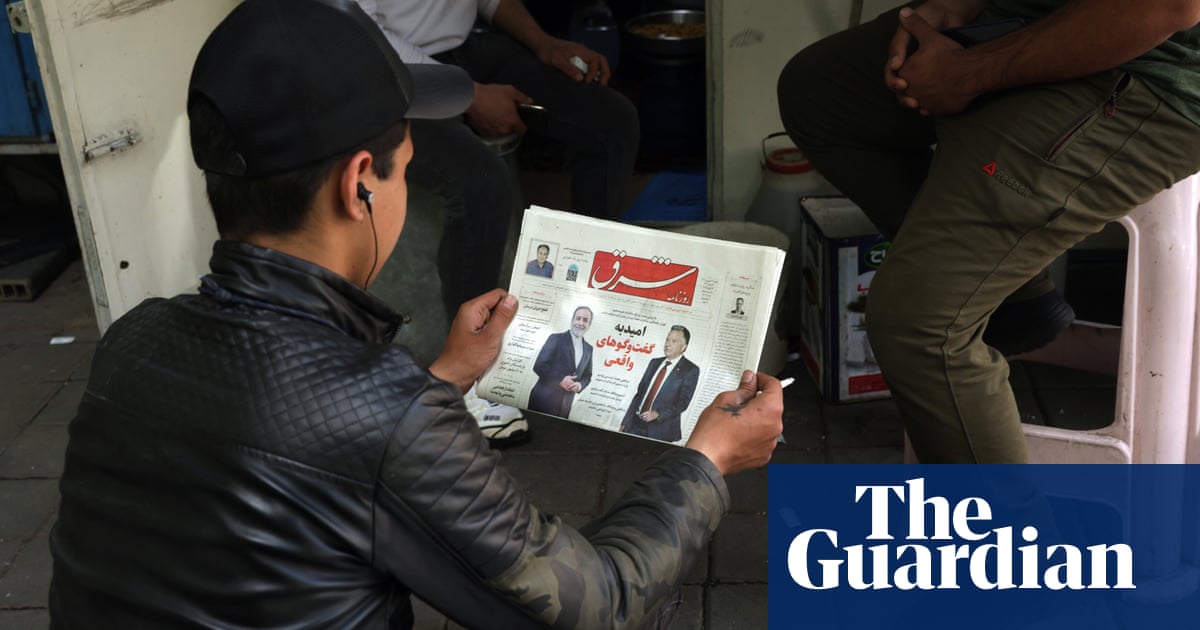Russia could play a key role in a deal on the future of Iran’s nuclear programme, with Moscow being touted not only as a possible destination for Iran’s stockpile of highly enriched uranium, but also as a possible arbiter of deal breaches.
Donald Trump, whoabandoned a 2015 nuclear pactbetween Tehran and world powers in 2018 during his first term, hasthreatened to attack Iranunless it reaches a new deal swiftly that would prevent it from developing a nuclear weapon.
Four hours of indirect talks between the US and Iran in Rome on Saturday, under the mediation ofOman, made significant progress, according to US officials. Further technical talks are due in Geneva this week, followed by another high-level diplomatic meeting next weekend in Oman.
Trump’s special envoy, Steve Witkoff, who was at the heart of the Rome talks, wants an agreement wrapped up within 60 days, but is likely to face resistance from Iran’s foreign minister, Abbas Araghchi, who believes the levels of distrust and the technical nature of the talks make such a swift agreement unlikely.
The two most daunting issues are the storage or destruction of Iran’s stockpile of highly enriched uranium, and the external guarantees that can be provided to Iran if the US was to breach an agreement to lift economic sanctions in return for Iran putting its civil nuclear programme back under external supervision by the UN inspectorate, the IAEA. Iran wants a guarantee of consequences for the US if it pulls out of or breaches another deal.
Iran wants to keep its uranium stockpiles inside the country, but the US rejects this and wants either the stockpiles’ destruction or a transfer to a third country, such as Russia.
Iran believes it has received assurances that the US objective is not the entire dismantling of its nuclear programme. Before the Rome talks, in an intervention that sowed confusion in Iran and the US, Witkoff had on social media seemed to endorse such an objective, causing consternation in Iran, but in Rome he gave the impression that this was largely domestic political messaging.
Mohamed Amersi, a member of the advisory board at the Wilson Center, a Washington thinktank, said: “From the Iranian perspective there had been some conflicting messages on social media and in interviews about the US wanting the complete elimination of their nuclear programme and that was not at all what Araghchi had agreed, so the first assurance was that there had been no expansion in the US objectives. If he had not got that assurance it’s likely the whole negotiation would have been wrapped up, and ended immediately.”
On guarantees, Iran believes the only secure agreement is a treaty signed by US Congress, but Araghchi was told it would be anyone’s guess whether Trump could get such an agreement through Congress given the strength of pro-Israeli opinion there.
Another option is for the US to agree to cover Tehran’s losses if Washington were to pull out of a deal. The Iranians floated the idea of a financial penalty before, but the enforcement mechanism in the absence of a treaty remains problematic. A third option if the US is in breach is for Russia to be empowered to return the handed-over stockpile of highly enriched uranium to Tehran, so ensuring Iran would not be the party punished for non-compliance.
Such an arrangement potentially gives Russia a pivotal role in the future US-Iran relationship, and might freeze out Germany, France and the UK, the current guarantors of the 2015 agreement. Neither Iran nor the US want to keep a major future role for the UN.
Rome was seen by some as an important site for the talks, since if they went wrong the Italian prime minister, Georgia Meloni, has the best relations with Trump, and so was well placed to mount a rescue operation. A tentative proposal for a meeting between Araghchi and the US vice-president, JD Vance, who was in Rome, was seen as premature.
There is pressure on Witkoff and Trump to deliver on one of the three negotiations in which they are involved – Iran, Hamas-Israel, and Russia-Ukraine. One source said: “Whatever you may think of Iran, they are rational actors, and they are more likely to strike a deal.”
Iran’s negotiating position was strengthened before the talks by the visit of the Saudi defence minister to Tehran to see the supreme leader, Ayatollah Ali Khamenei. The visit was intended as a message of solidarity that it opposes and would not collaborate in any US-Israeli attack on Iran’s nuclear sites.
The Omani foreign ministry said the goal of the talks was to reach “a fair, sustainable and binding agreement … to ensure that Iran is completely free of nuclear weapons and sanctions, while preserving its right to develop nuclear energy for peaceful purposes”.
